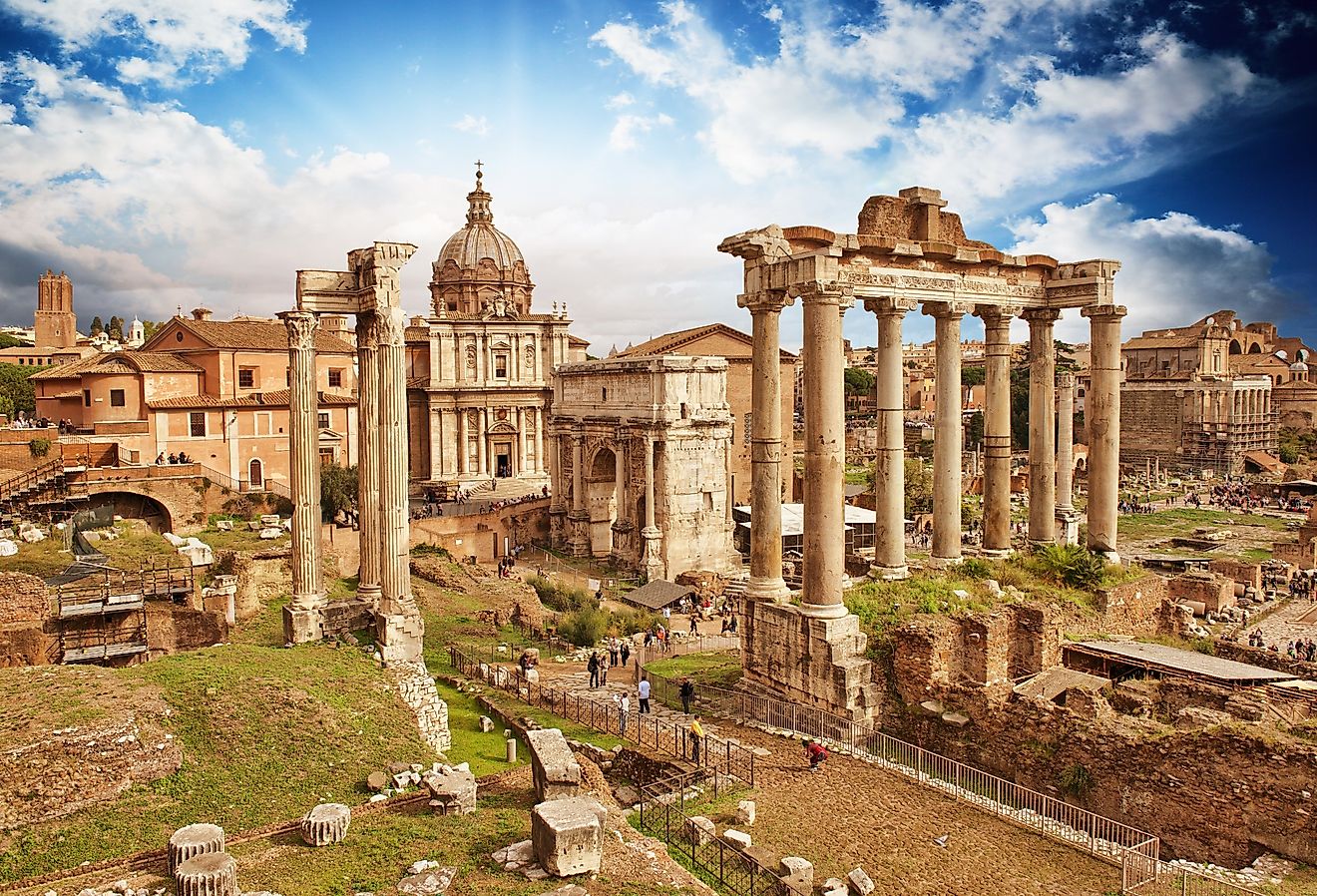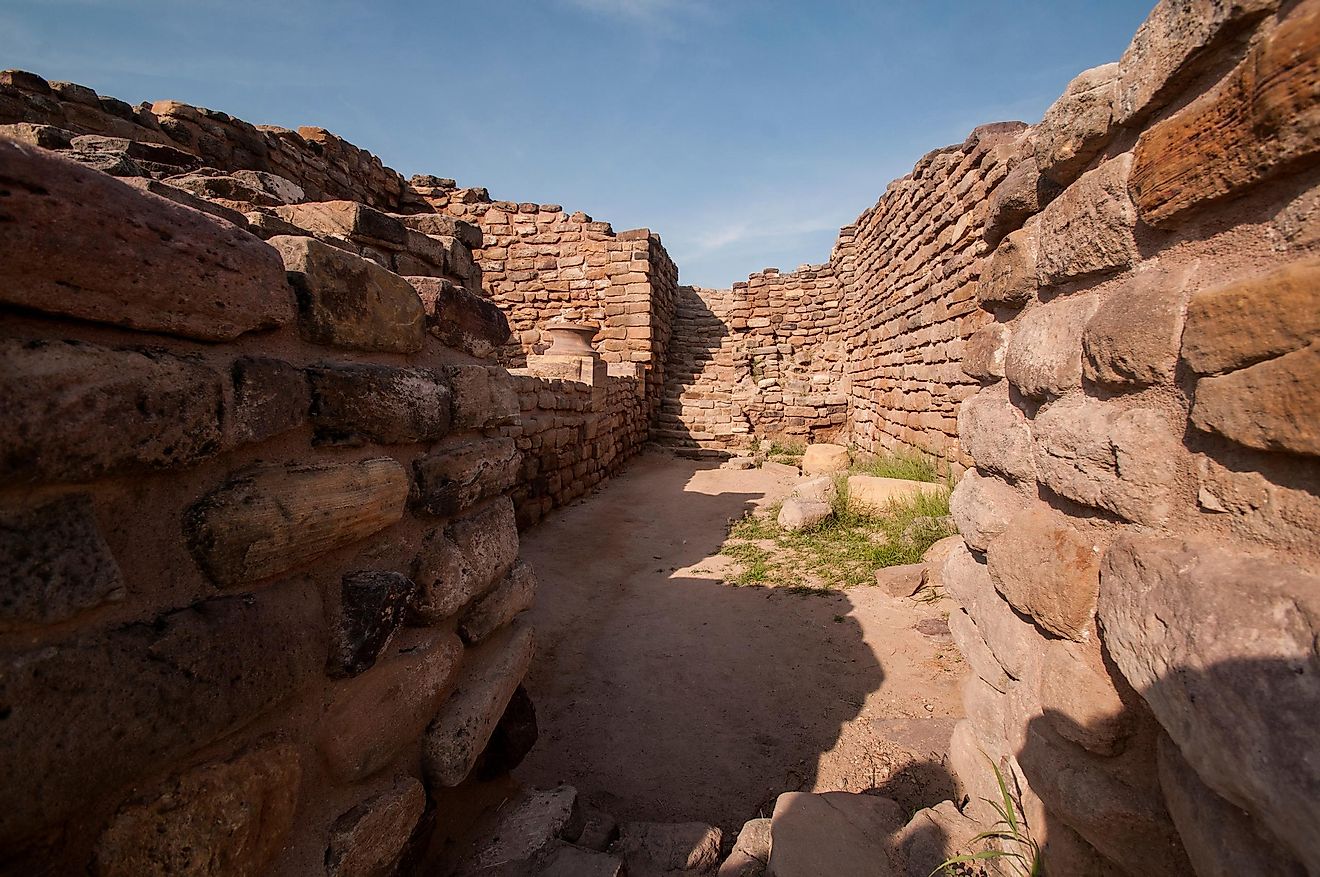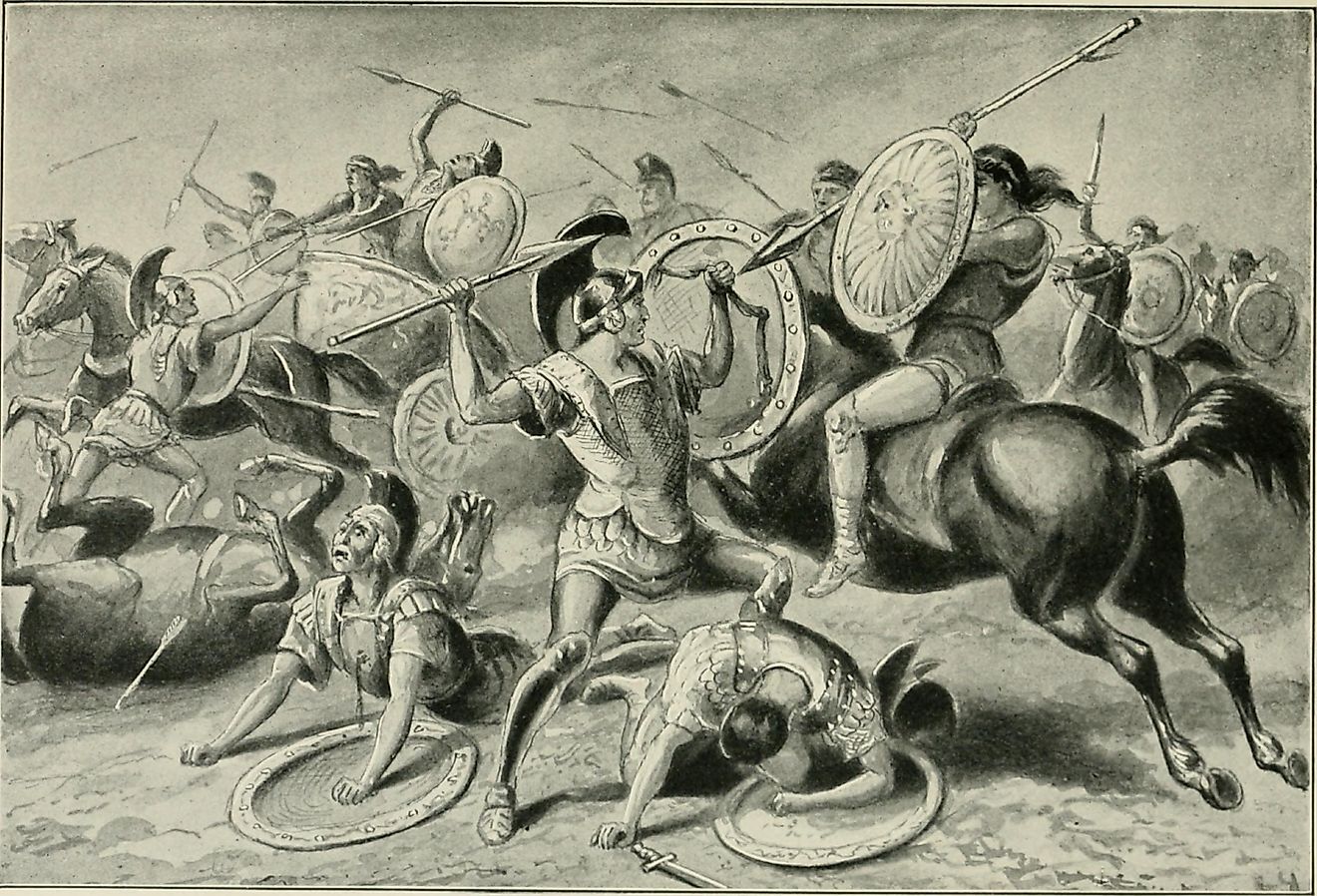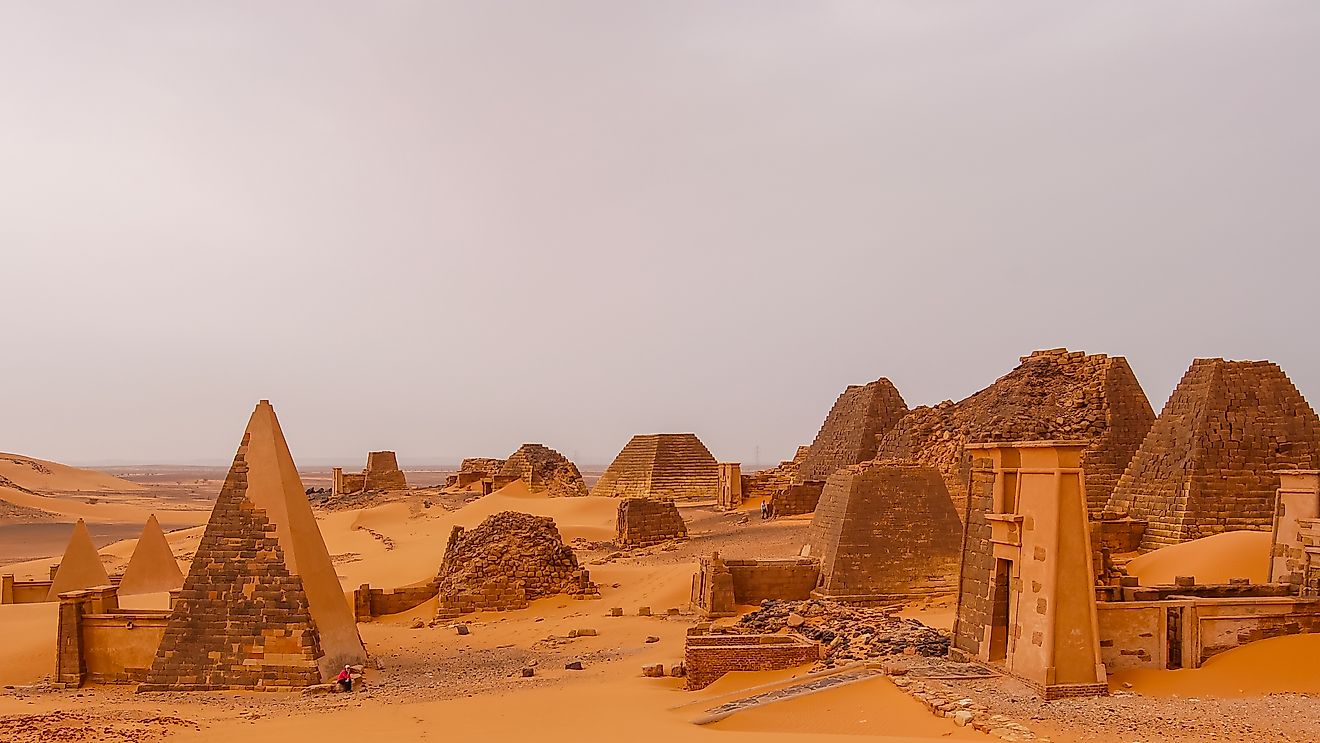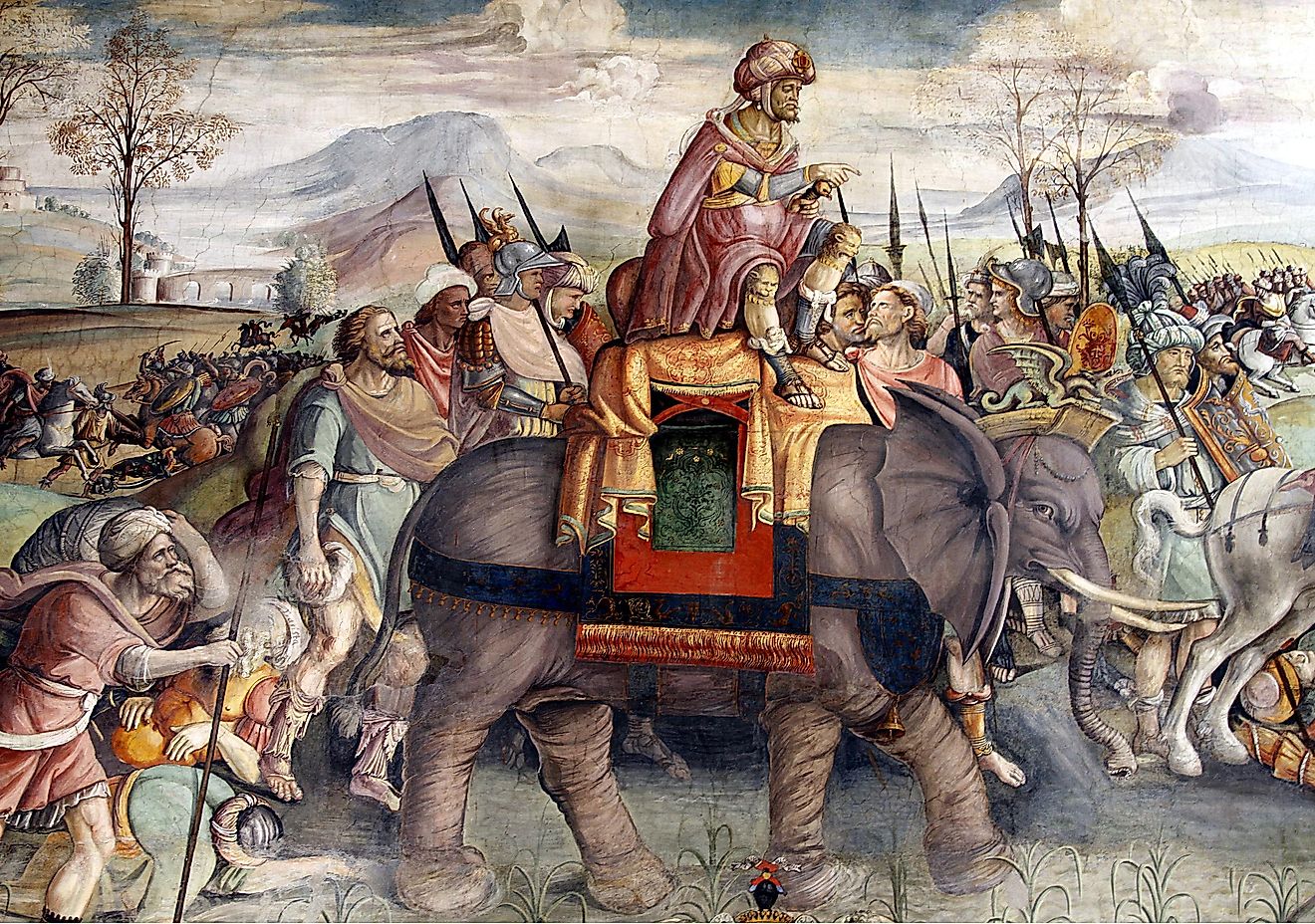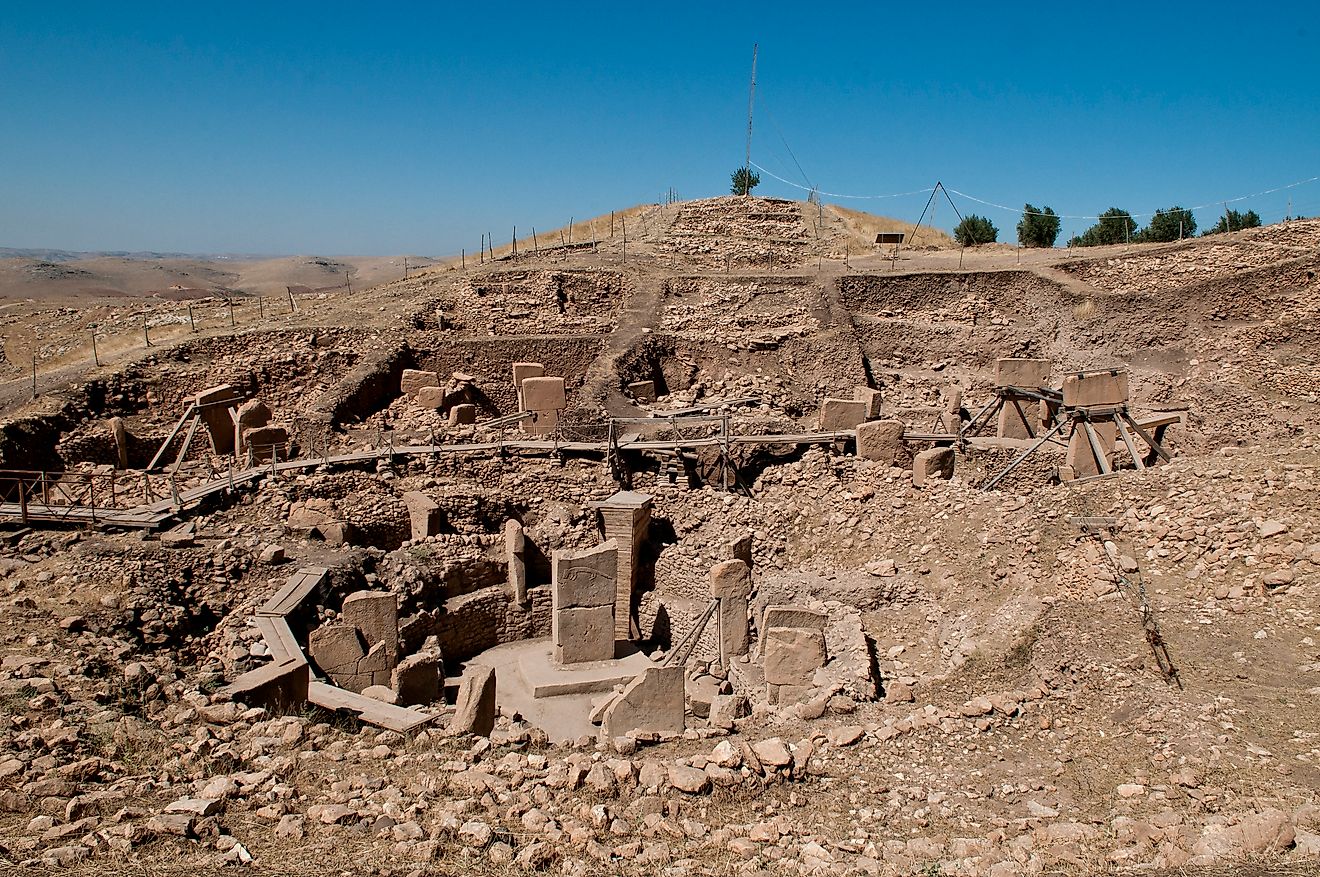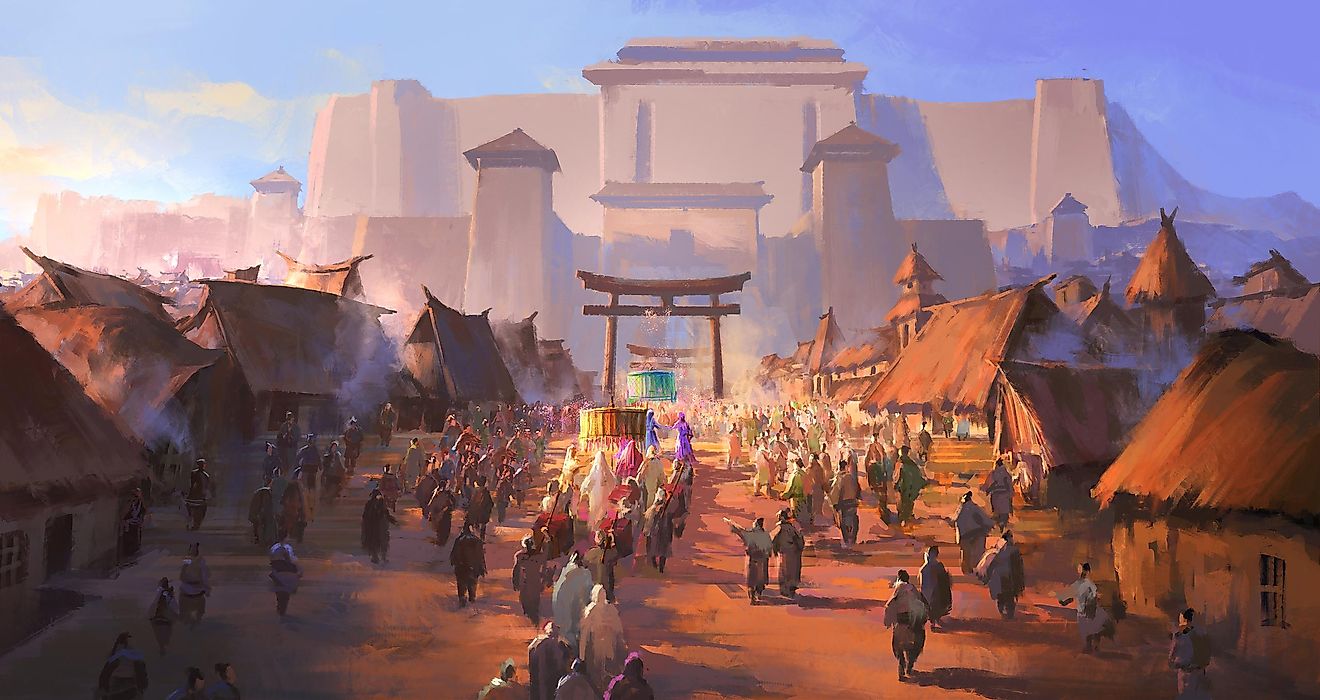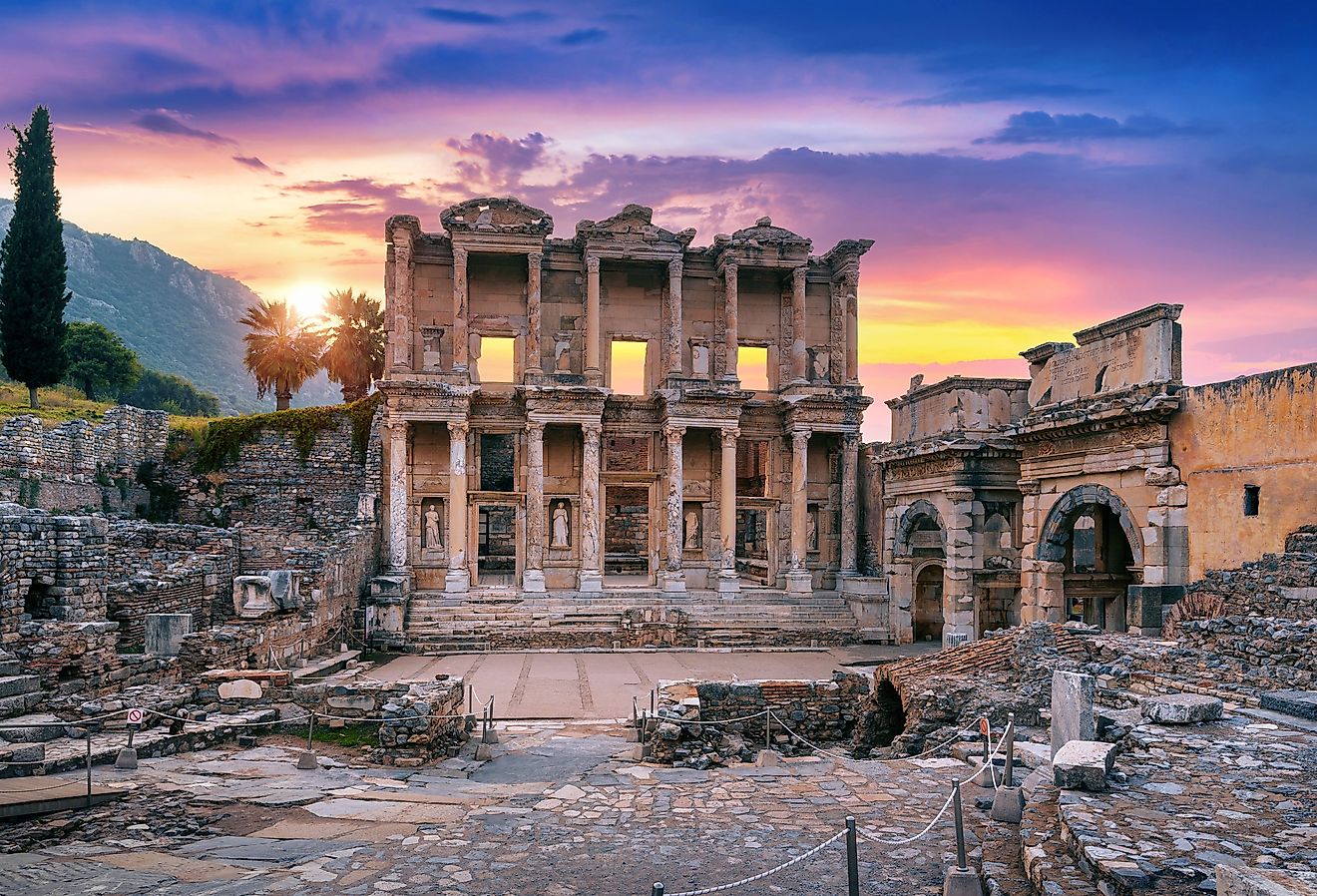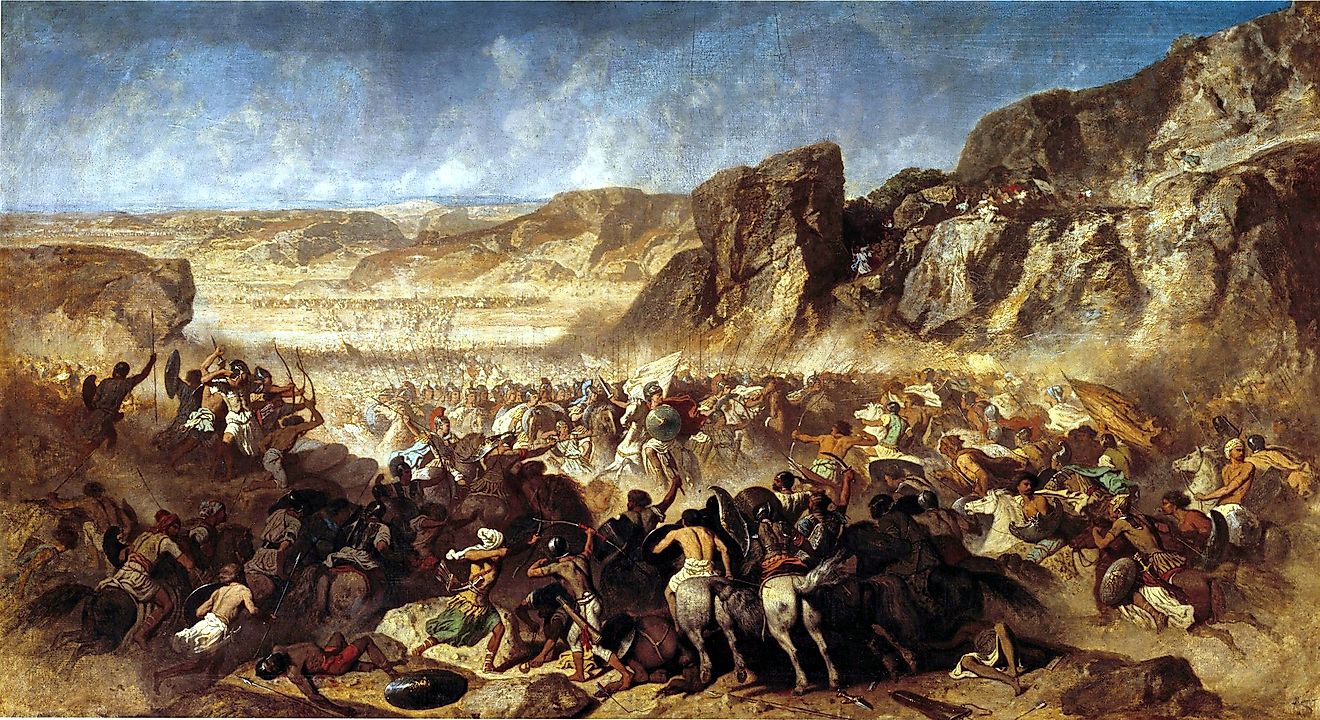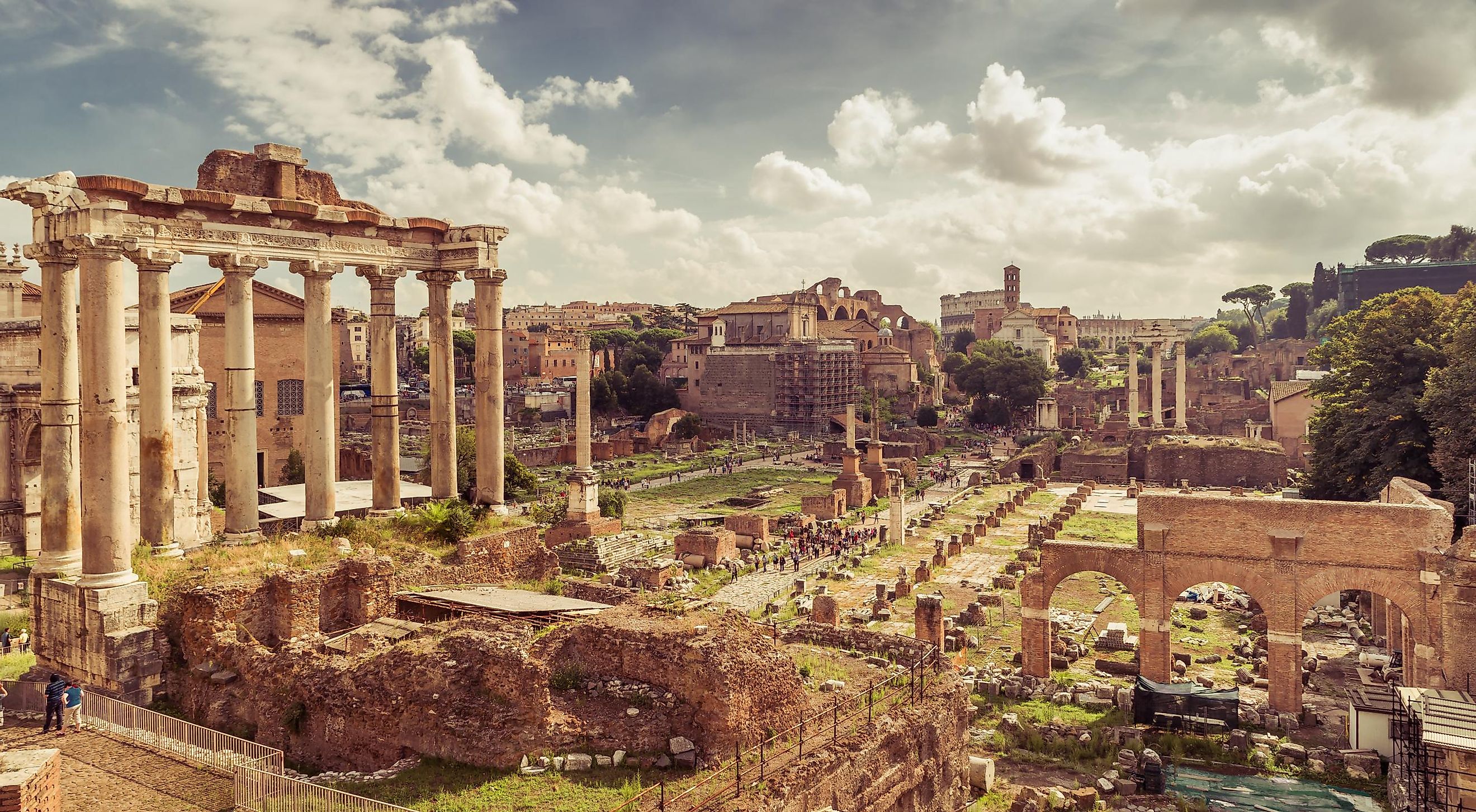
7 of the World's Greatest Ancient Empires
What is an empire and how is it different from a civilization? Here is what it comes down to: civilizations, unlike empires, are decentralized. A good example of this is the city-states of ancient Greece. The likes of Troy or Thebes, which were both cities that belonged to the same civilization, spoke the same language and believed in the same gods and goddesses. But they were independent. When Alexander the Great came along and started conquering the Greek city-states, they were added to the Macedonian Empire. Their decentralized governments were centralized by Alexander the Great.
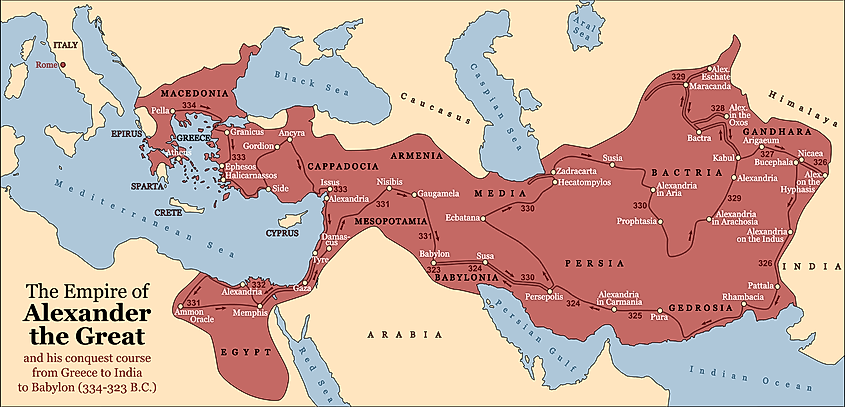
Empires always spanned multiple nations and had a centralized authority. Now often when people think about the great empires of the past, they are often enamored with the likes of the British or Roman Empires. Those far-reaching kingdoms engulfing entire continents and millions of people being ruled by one centralized government. But what force dominated the ancient world before the likes of the medieval era? In today's post, we will be taking a deep dive into history and swimming past the modern era, through the medieval era and deep into the ancient world.
The Akkadian Empire 2334 – 2154 BC
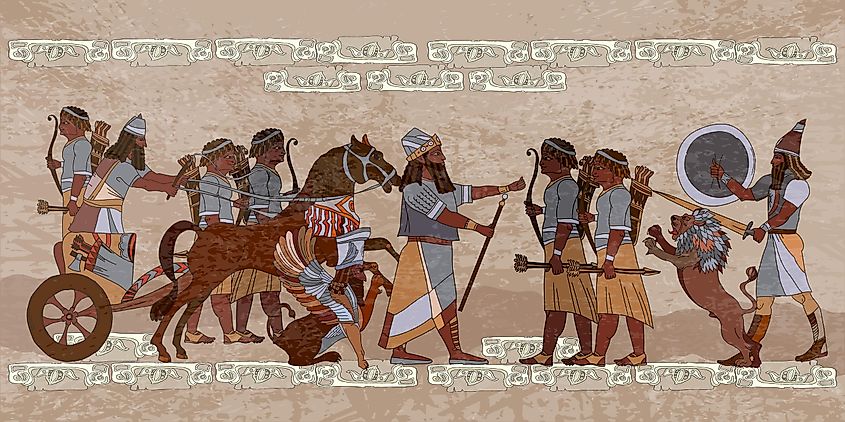
The Akkadian Empire makes our list of greatest empires not because of its size, the reality is the Akkadian Empire was small compared to the many empires that would follow. What makes this little empire remarkable is its age. The Akkadian Empire, as far archeologist can tell, is the first empire to spring into existence. The empire encompassed most of Mesopotamia and included the Sumer People. Prior to the Akkadian Empire the entire region of Mesopotamia was ruled by city-states. Then, nearly 4,500 years ago, the city of Akkad rose to dominance. With its superior military prowess, Akkad defeated the rivaling city-states and united the region under a singular empire. The Akkadian Empire acquired its name from the city of Akkad, who swelled to power conquering the entire region.
The Assyrian Empire 2025 – 605 BC
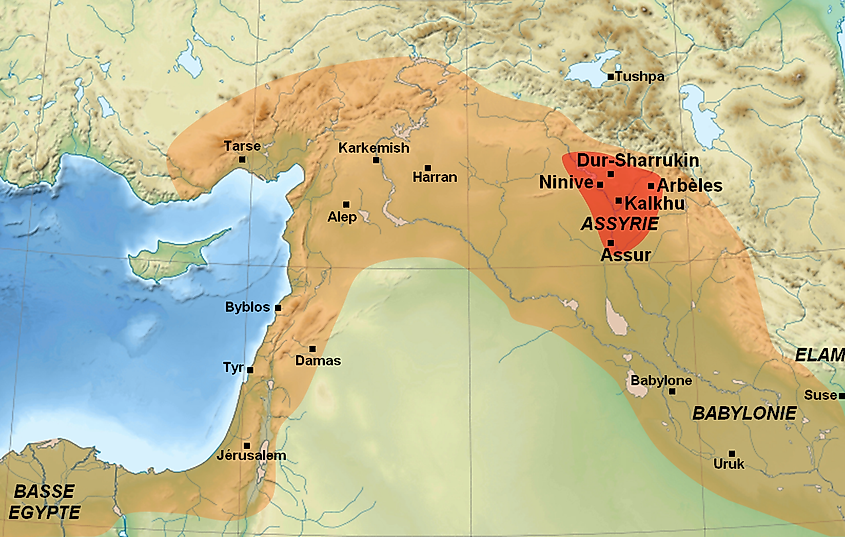
The Assyrian Empire blasts onto our list of greatest empires because it was the most powerful empire to arise out of the ancient Middle-East. Located in modern day Iraq and Turkey this empire united most of the Middle-East and spanned from Egypt to the Persian Gulf. However, the Assyrians were not born into power, indeed, during the second millennium B.C. the Assyrians were subjected to the City of Babylon and they would not throw off the yoke of bondage until 1400 B.C. when they became their own sovereign city-state and kick-starting their conquest of the Middle East. The Assyrian Empire is remembered for its ingenuity in building and founded some amazing cities, the likes of Nineveh and Ashur.
The Babylonian Empire 1894 – 1595 B.C.
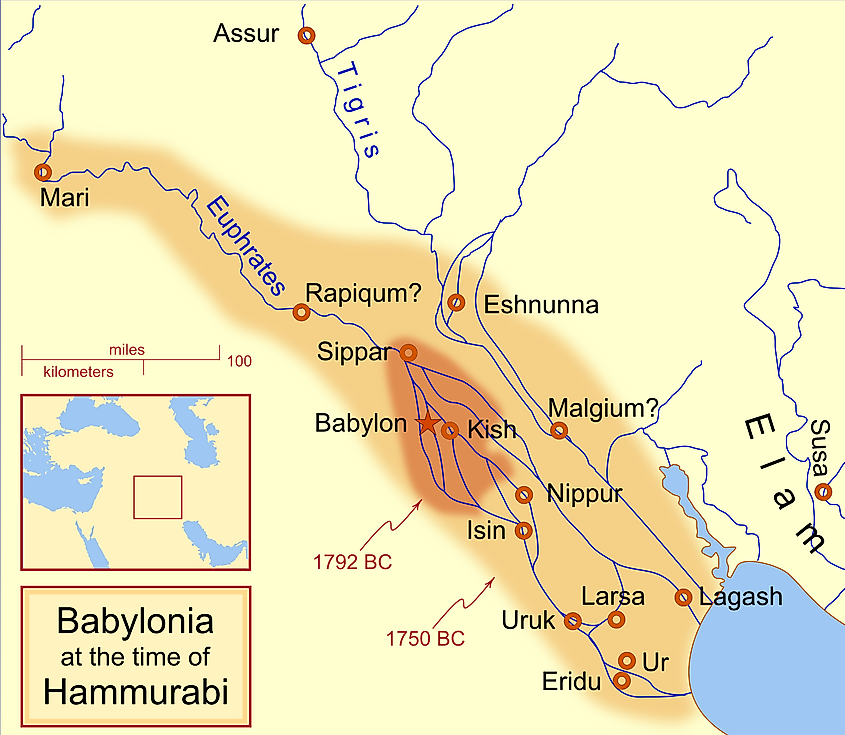
The city of Babylon was first founded around 4,000 B.C., however, it would not rise to political significance for another 3,894 years. Nestled between the Tigris and Euphrates Rivers and located near modern-day Bagdad, this ancient empire was named after its capital city, Babylon and was a significant empire that, according to the ancient book, the Bible, reached as far as Israel. The Babylon Empire is among the greatest because of its massive contributions in technology. Indeed, the Babylonians are responsible for inventing written language, sailboats and the seed plow.
The Hittite Empire (1600 – 1193 B.C.)
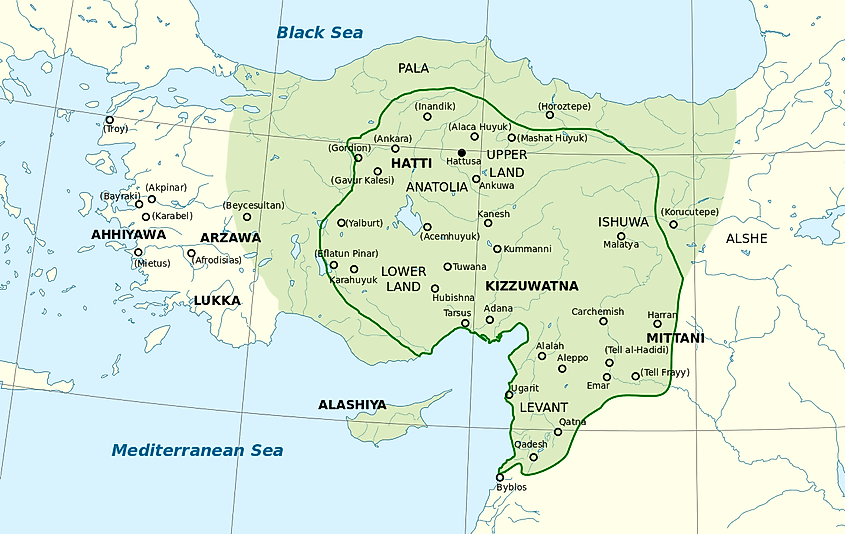
Not much is known about the Hittite Empire. They suddenly emerge on the scene around the start of the second millennium most likely hailing from beyond the Black Sea, this ancient Indo-European people gradually became the regions super power. Unlike a lot of empires, however, the Hittite king did not have complete authority inside his empire but instead the government was divided into regions with regional authority being delegated to lower ranking chiefs. The Hittite Empire was rich in silver and their advancements with iron work helped kick-start the Iron Age. One of the more interesting ideas developed by the Hittites was the concept of a peace treaty. Indeed, the Hittite Empire created the worlds first known peace treaty after years of war with Egypt.
The Egyptian Empire (1539 – 1292 B.C.)
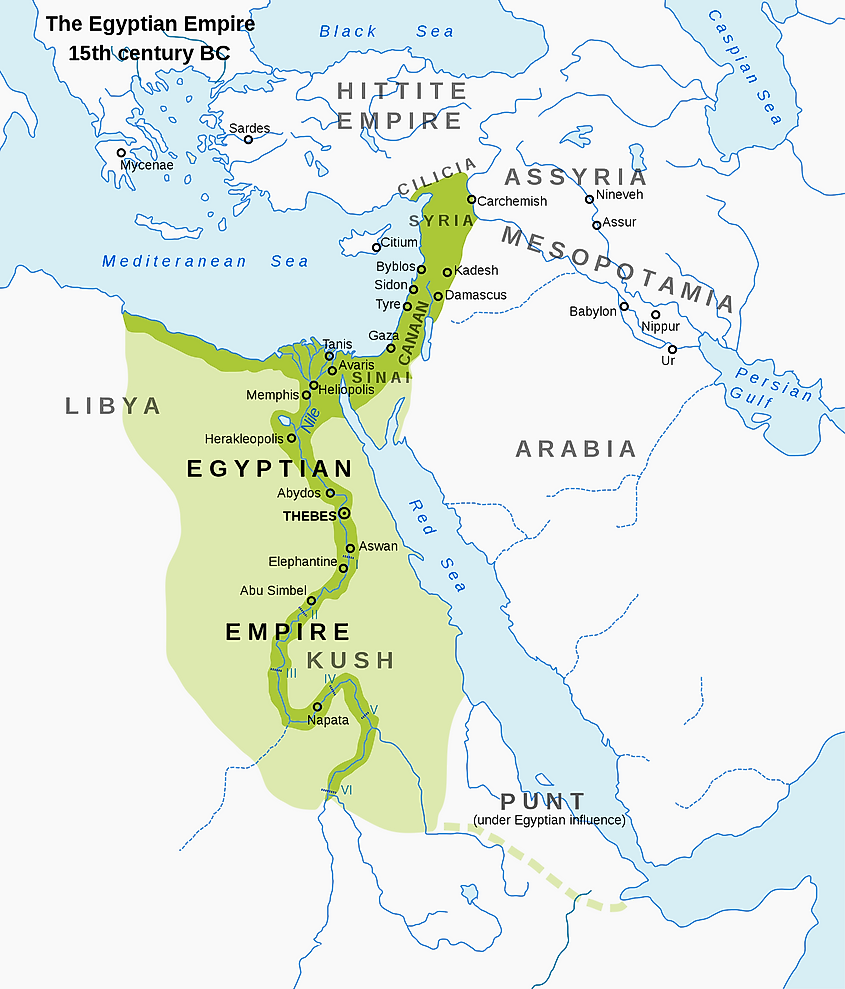
The Ancient Egyptian Civilization is much older than its empire. With people living in Egypt as far back as the third millennium. However, Egypt didn’t begin its empire until 1550 B.C. When, led by Ahmose, the entire Egyptian Civilization was united under his centralized government, giving birth to what historians call the New Kingdom. Ahmose was promptly made pharaoh of a united Egypt. Under the rule of Ahmose Egypt expanded its boards, laying siege and conquering cities as far away Palestine.
The Carthaginian Empire (650 – 146 B.C.)
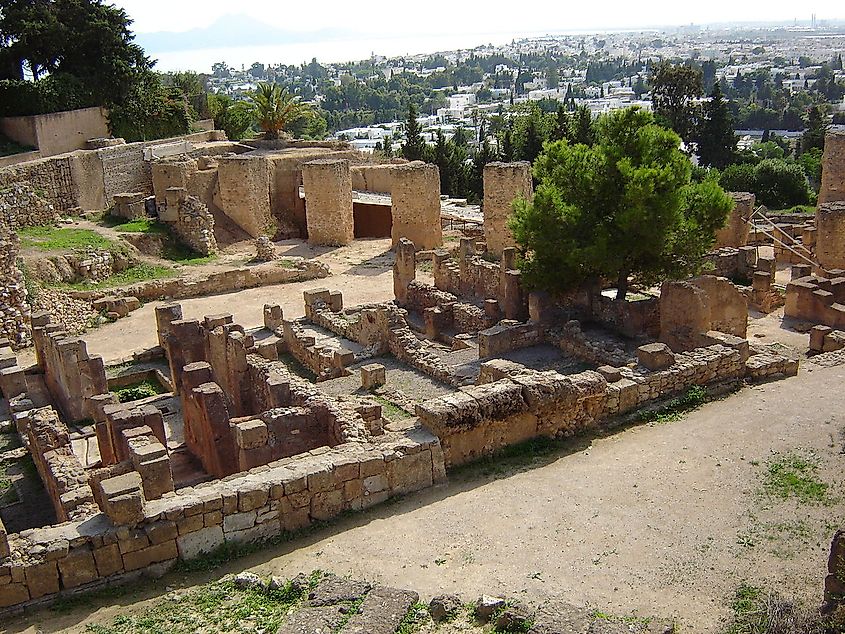
The Carthaginian Empire diverged its name from the capital city, Carthage. Located on the coast of North Africa, Carthage was uniquely positioned to control ships on their way to the Mediterranean Sea. The city quickly emerged as a rival to the Ancient Roman Empire and during the course of its long history was constantly at war with the Romans. According to legend this massively influential empire that challenged Rome started as a coastal city founded by the Phoenicians of Tyre in 814 B.C. This ancient city is now the location of a suburb to the modern city of Tunis. While not the most powerful empire to arise, it does make our list of greatest empires because of its location. The Carthaginian Empire controlled access to the Mediterranean Sea and is said to have controlled 300 cities.
The Achaemenian Empire (559 – 330 B.C.)
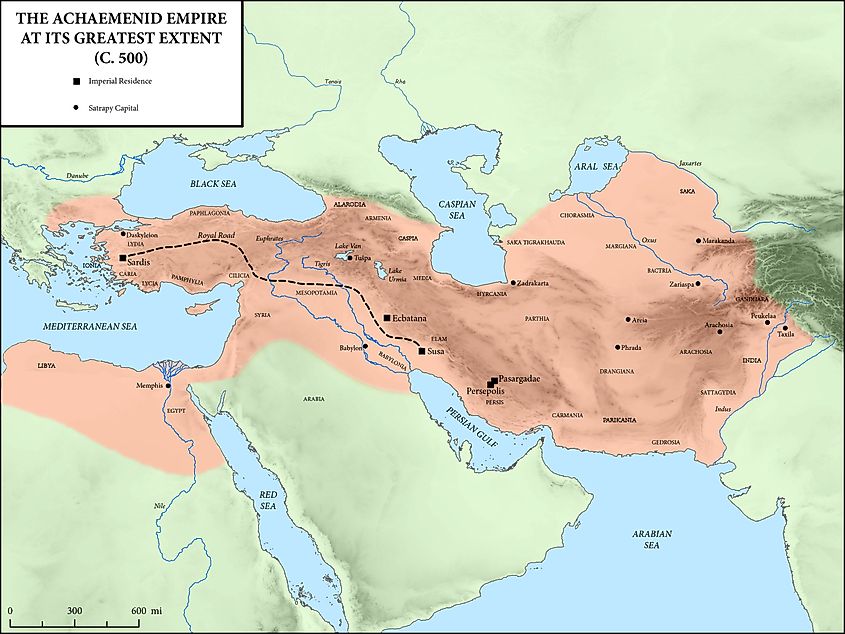
The Achaemenian Empire, also referred to as the Persian Empire was locate in modern day Iran. The Achaemenian Empire was one of the greatest ancient empires and makes our list because of its sheer size. This massive empire reached as far west as Macedonia and Libya and even clutched control as far east as the Hyphasis River. The Achaemenian Empire encompassed the Caucasus Mountains and the Aral Sea in the north and laid hold of the Persian Gulf and the Arabian Desert in south. Continuing to span until the empire abruptly ended when Alexander the Great began his conquests. While, perhaps short-lived when compared to other empires the Achaemenians are famous for military strength and even defeated the armies of Sparta.
In conclusion, these seven remarkable ancient empires helped to shape the ancient world and set the stage for the modern 21-centruy. While we may never know the full existent of how these 7 Greatest Ancient Empires have affected us today. It is undeniable that they set into motion events that are still impacting us to this day.
